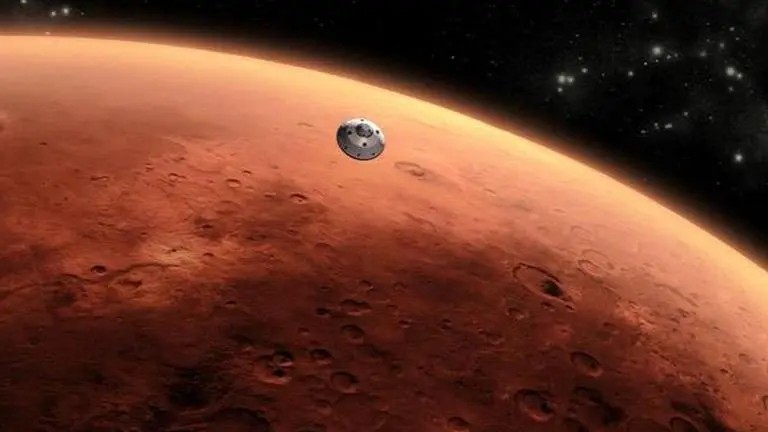Updated 12 June 2022 at 16:01 IST
Roscosmos-ESA resume discussions over suspended ExoMars mission; launch likely in 2024
Roscosmos chief Dmitry Rogozin revealed that talks with the European Space Agency for launching the ExoMars mission have resumed following suspension.
- Science News
- 2 min read

Dmitry Rogozin, Director-General of Russian space agency Roscosmos on Sunday, June 12, revealed that negotiations with the European Space Agency (ESA) over the ExoMars mission have resumed. The mission was suspended from the European side due to the sanctions imposed on Russia for its unprovoked invasion of Ukraine. While the ExoMars was initially scheduled for take-off in September, the launch is not possible before 2024, Rogozin told Russian media house TASS.
"ESA colleagues promised to make requests to their patrons, who are ESA member states. If they cooperate and give their consent, the mission may be implemented", the Roscosmos chief said as he expects a response by late June. Under the collaborative ExoMars mission, Europe has developed the Rosalind Franklin rover which was to be delivered to Mars in a Russian launcher and by the Kazachok lander. However, following the announcement of the suspension, an irked Rogozin claimed to launch the Mars mission without European help.
According to Rogozin, Roscosmos will commence work on developing the mission on its own and the Kazachok landing module, designed by the Lavochkin Research and Production Association, will soon be returned to Russia. Once developed, the mission will be launched by the Angara-A5 carrier rocket from the Vostochny space center. Since the rocket has no chance of launching in September, the mission will now liftoff in 2024 since launch windows to Mars open only once every two years.
The ExoMars mission
The primary exploration was to be done by the Rosalind Franklin rover that was being sent to the red planet. According to ESA, the main objective was to land the rover at a site with a high potential for finding well-preserved organic material belonging to early Mars. The mission profile suggests that the rover will drill down to a depth of 2 metres and analyse them with next-generation instruments in an onboard laboratory to find signs of life.
Advertisement
Earlier in March, European Space Agency had said that the suspension with Russia has given a new life to its Mars mission and revealed that it is now looking for new partners along with new launch options to send the rover to Mars.
Published By : Harsh Vardhan
Published On: 12 June 2022 at 16:01 IST
